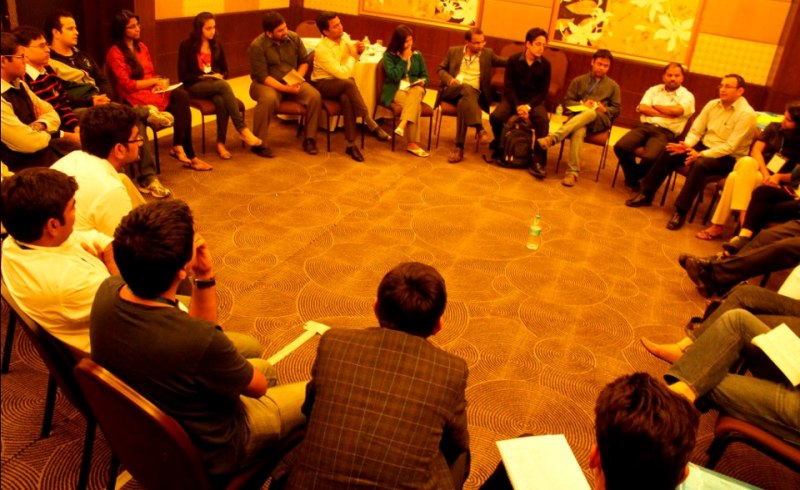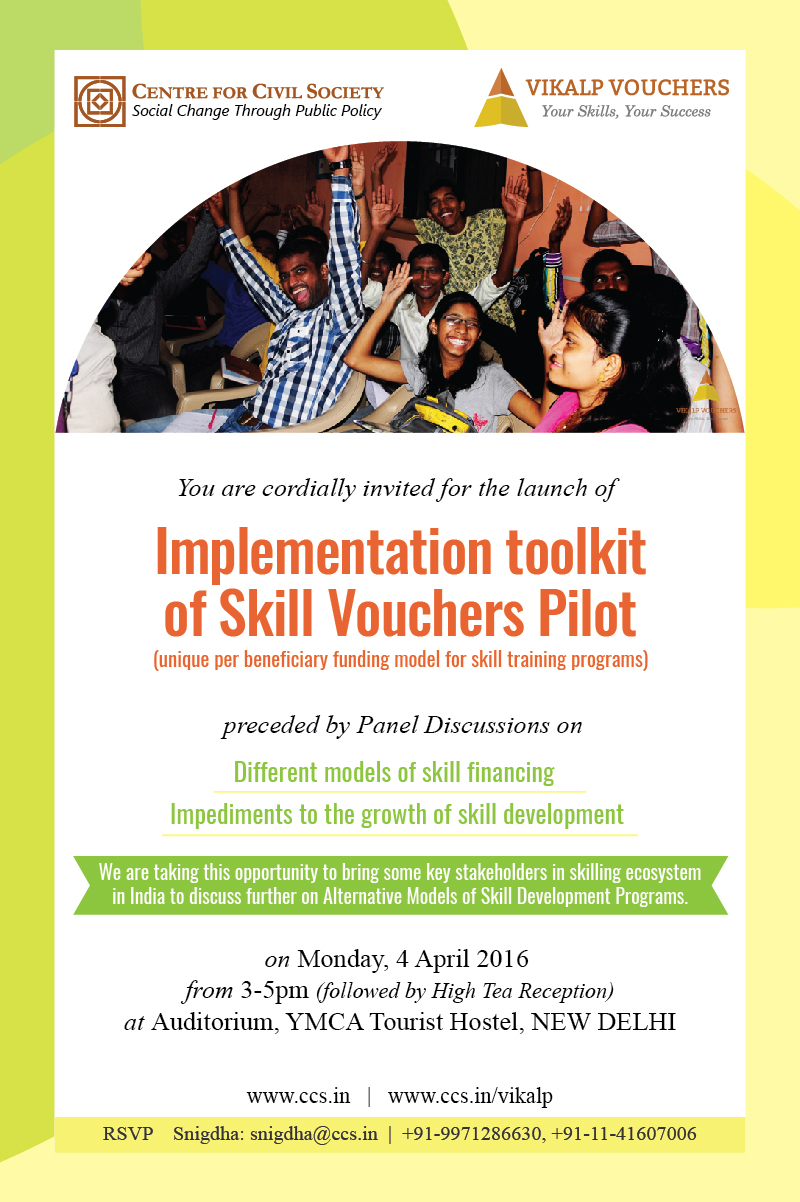You are here
Events
#ccstalks TweetChat: Is Odd Even policy comeback: Problem or Solution?
To read the storify version of chat click here.

With odd-even policy set to comeback from 15th April, the question of it being useful for tackling the issue of pollution in Delhi arises again.
Is odd-even rule an effective solution to the issue of pollution? More importantly, should the government not focus on up of public transportation system?
Join us for #ccstalks on Wednesday, 13 April 2016 from 4-5pm! Log in to tweetchat.com or Twitter and follow #ccstalks. We look forward to speaking with you! For more information, contact Snigdha Verma (programs@ccs.in).
Vikalp: Accelerating skills training through voucher
To read the event report click here. To see media coverage, click here. |
|
CCS is bringing some key stakeholders from the skilling ecosystem together to discuss Alternative Models of Skill Development Programs. Join us for the launch of the Vikalp Implementation Toolkit and panel discussions on:
Download detailed agenda. See details of panelists. To mark your presence, RSVP to snigdha@ccs.in. |
ipolicy for Development Leaders, April 2016

How do we develop interventions that will actually deliver desired change given the complex nature of development problems? Instead of providing direct relief alone, are there ways to empower the target group to solve problems for themselves? What government policies contribute to the existence of problems in the first place? ìpolicy for Development Leaders offers a dynamic and empowering learning experience for civil society professionals and equips them with tools that will make them more effective at their work.
Eligibility: This course is targeted towards professionals of civil society organisations, think tanks, non-governmental organisations, research institutes, etc. Heads of institutions are requested to nominate at least 2 staff members to attend the course.
Course Fee: Rs 2,500 (food and program materials for the entire duration of the program only). The fee is payable upon selection, and can be made online, via cheque or DD, details of which will be communicated later.
Application Deadline: 15 March 2016
Click here for more information.
#ccstalks TweetChat: How to improve implementation of RTE 25% reservation?
To read the storify version of chat click here.

25% reservation under RTE aims at inclusion of the Economically Weaker Sections (EWS) in private education system. Numerous studies suggest that the implementation has been ineffective. Is 25% Economically Weaker Sections (EWS) quota under RTE an effective policy intervention? If yes, shouldn't the govt. fund students rather than schools to promote choice and accountability?
Join us for #ccstalks on Wednesday, 30 March 2016 from 4-5pm! Log in to tweetchat.com or Twitter and follow #ccstalks. We look forward to speaking with you! For more information, contact Snigdha Verma (programs@ccs.in).
#ccstalks TweetChat: ‘Public sector banks have been the largest owner of the NPAs, why?'
To read the storify version of chat click here.

"Twenty-nine state-owned banks wrote off a total of Rs 1.14 lakh crore of bad debts between financial years 2013 and 2015, much more than they had done in the preceding nine years,” according to a newspaper report. Can private sector banks help the poor or do we need public sector banks? If Public sector banks exist, should we not ponder upon the policies that govern them presently?
Join us for #ccstalks on Wednesday, 16 March 2016 from 4-5pm! Log in to tweetchat.com or Twitter and follow #ccstalks. We look forward to speaking with you! For more information, contact Snigdha Verma (programs@ccs.in).



